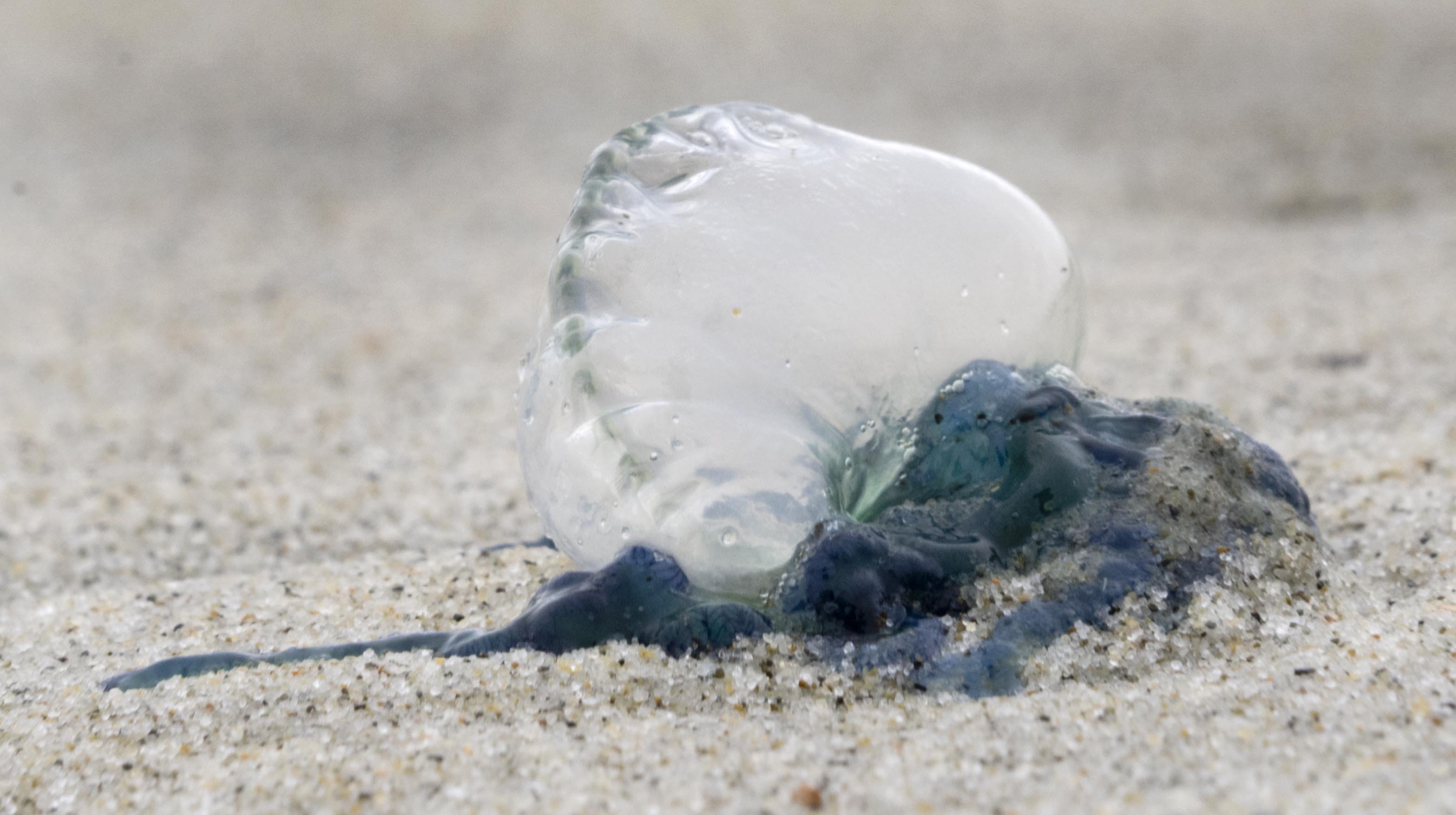
On Tuesday, Dunedin beach-goers noticed Allans and Brighton beaches had turned into graveyards for dried-out bluebottle jellyfish.
The sight prompted fears over social media about the prospect of a sting.
University of Otago head of marine science Prof Miles Lamare said bluebottle blooms stranded on shore were not an uncommon site in Otago for the time of the year, especially under the right conditions.
"The easterly wind would usually bring them to shore and they’ll wash up ... they are essentially at the mercy of the wind."
The warmer time of the year led to a population boom for many bluebottle colonies and when together, one member of the colony would make a gas-filled float with a ridge that would act as a sail to push them around to eat plankton.
"They can’t control their distribution, so when the wind is just right, they’ll blow right to shore and end up stranded on the the beach."
While not an uncommon sight, a bluebottle sting still hurt and people should be cautious, Prof Lamare said.
The Health New Zealand Te Whatu Ora website said bluebottles had a burning sting, and advised people to call emergency services if someone displayed symptoms of a serious allergic reaction after being stung.











